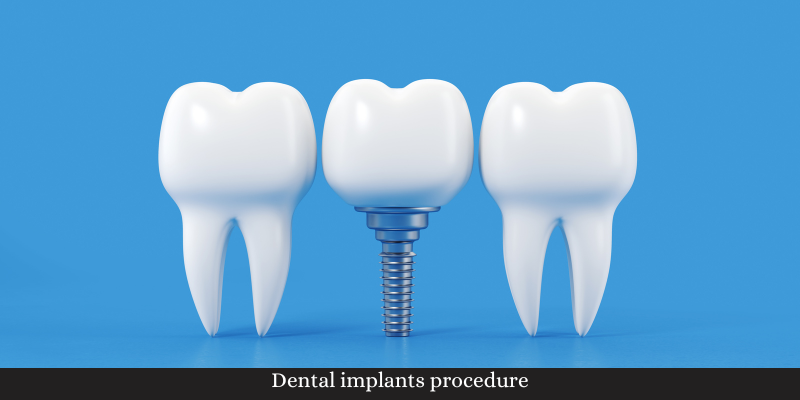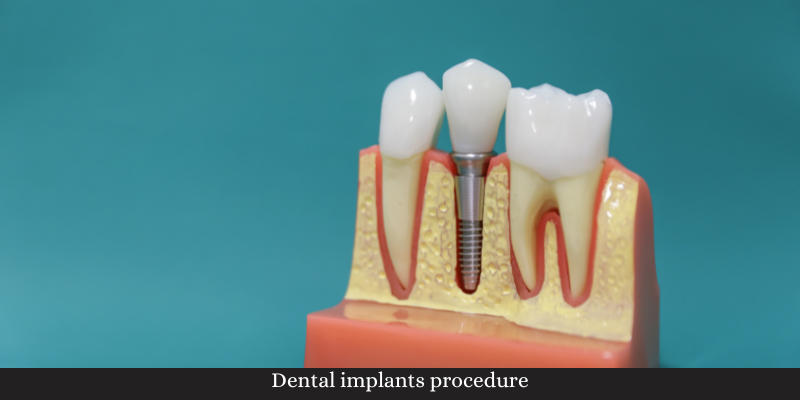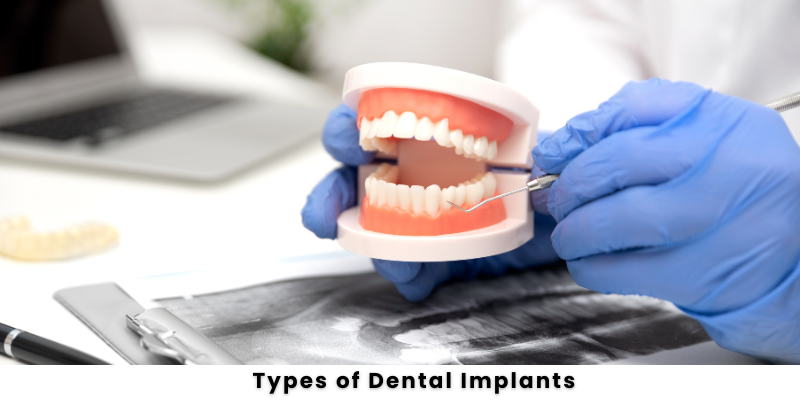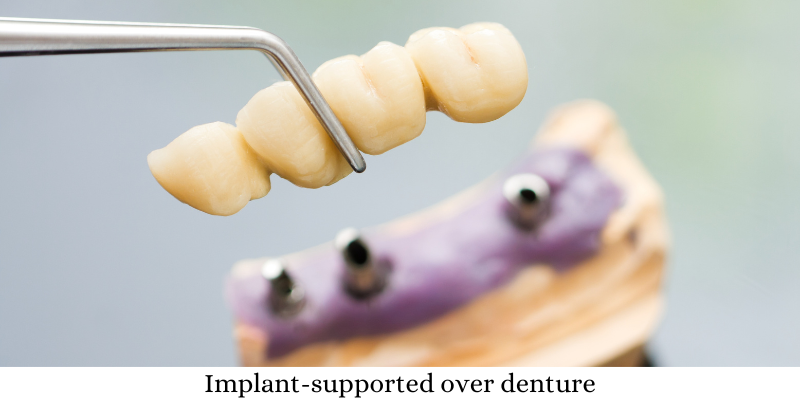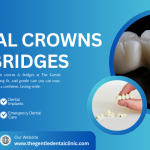What Are Dental Implants?
Dental implants are sophisticated dental devices used to replace missing teeth, providing a durable and aesthetically pleasing solution that closely mimics natural teeth. They are typically composed of three parts: a titanium post that is surgically inserted into the jawbone, an abutment that connects the implant to the replacement tooth, and the prosthetic tooth or crown, which sits on top. Titanium is chosen for the post because of its biocompatibility, allowing it to fuse with the bone through a process called osseointegration.
This integration ensures that the implant provides a stable and strong foundation for the replacement tooth.
Dental implants serve both functional and cosmetic purposes, restoring the ability to chew food effectively and enhancing the person’s smile. They also help maintain the integrity of the jawbone, preventing the bone loss that commonly occurs after tooth loss. Unlike dentures, which may slip or cause discomfort, implants remain securely in place, offering a more comfortable and permanent solution. Suitable candidates for dental implants generally have sufficient bone density and are in good overall health.
This procedure, while typically more costly than other tooth replacement options, is favored for its durability and the natural appearance it offers. Dental implants have transformed modern dentistry, providing patients with a long-lasting solution to the problem of missing teeth.
Benefits Of Dental Implants
Dental implants offer a multitude of benefits, making them a popular choice for those seeking to replace missing teeth. One of the most significant advantages of dental implants is their ability to mimic the natural function and appearance of real teeth. This not only enhances the aesthetic aspect of one’s smile but also improves self-esteem and confidence. Dental implants are designed to be a permanent solution, as they are anchored into the jawbone, providing stability and durability.
Unlike dentures, implants do not shift or move, enabling individuals to speak and eat with ease.
Moreover, dental implants help in maintaining oral health by preventing bone loss in the jaw. When a tooth is lost, the jawbone in that area begins to deteriorate over time due to lack of stimulation. Implants provide the necessary stimulation to the jawbone, preserving its density and integrity. Additionally, implants do not require the alteration of adjacent healthy teeth, which is often necessary with traditional bridges.
This conserves the natural tooth structure and promotes overall dental health.
Furthermore, dental implants offer the convenience of easy maintenance. They can be brushed and flossed just like natural teeth, eliminating the need for special adhesives or soaking. Their longevity makes them a cost-effective option in the long run, as they typically do not need to be replaced with proper care. Overall, dental implants significantly enhance the quality of life for individuals with missing teeth.
Types Of Dental Implants
Dental implants come in various types, each tailored to meet specific needs and situations of the patient. The most common type is the endosteal implant, which is suitable for most patients needing the replacement of one or more teeth. These implants are surgically placed directly into the jawbone and typically made of titanium, offering excellent stability for the replacement teeth. Another type is the subperiosteal implant, which is placed under the gum but above the jawbone.
This type is often used for patients who do not have enough healthy jawbone and are unable to undergo procedures like bone augmentation. Subperiosteal implants can provide support to dentures in patients whose bone has significantly receded. Zygomatic implants offer a solution for individuals with severe bone loss in the upper jaw. Instead of being placed in the jawbone, they anchor in the cheekbone, allowing individuals with minimal bone in the upper jaw to still receive dental implants.
Some patients benefit from mini implants, which are smaller in diameter and used in cases where there might not be enough space for a traditional implant. Additionally, these mini implants can be installed in a less invasive manner, making them an attractive option for certain patients. The choice of implant type largely depends on the patient’s specific dental health, bone availability, and individual needs.
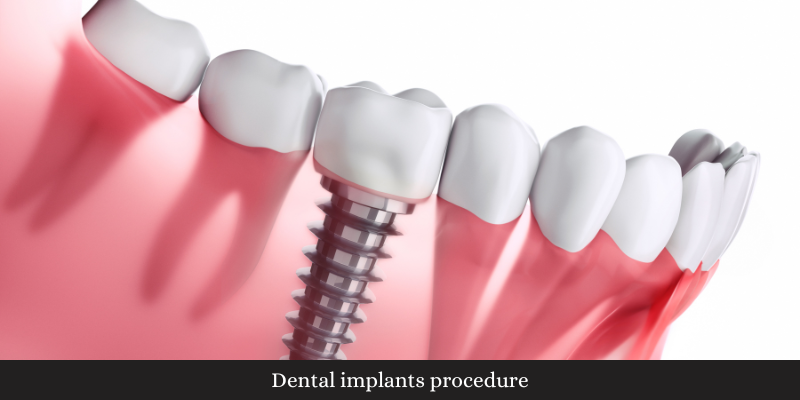
The Dental Implant Procedure: Step-By-Step
The dental implant procedure is a comprehensive multi-step process designed to restore the function and aesthetics of missing teeth. It begins with an initial consultation where the dental professional conducts a thorough examination of the patient’s oral health. This includes taking X-rays and impressions to assess the jawbone’s condition and ensure it can support an implant. Once deemed suitable, the process of placing the implant commences.
During the first surgical procedure, usually performed under local anesthesia, the dentist makes an incision in the gum to expose the jawbone. A small hole is drilled into the bone, into which the titanium implant is carefully inserted. This implant serves as an artificial tooth root, providing a sturdy foundation for the replacement tooth.
After placement, a crucial healing period called osseointegration takes place. Over several months, the jawbone naturally grows around the implant, ensuring its stability and permanence. Once the implant is securely integrated, the next step is to attach an abutment, a small connector that links the implant to the prosthetic tooth. Finally, a custom-made crown is crafted to match the surrounding teeth and is affixed to the abutment, completing the restoration.
Throughout the process, follow-up visits are essential to monitor progress and ensure optimal results. The entire procedure may take several months, but the outcome is a durable and natural-looking solution to tooth loss.
Recovery And Aftercare For Dental Implants
Recovery and aftercare for dental implants are crucial components in ensuring the success and longevity of the implants. After the procedure, patients can generally expect some swelling, discomfort, and minor bleeding, which are normal and should subside within a few days. Pain can be managed with prescribed or over-the-counter pain medications, and applying ice packs to the affected area may help reduce swelling.
It is essential to follow the oral surgeon’s instructions closely to promote healing and prevent complications. Maintaining good oral hygiene is critical during the recovery period. Patients are typically advised to rinse their mouth with a saltwater solution to keep the area clean, as brushing the surgical site might be restricted initially. Smoking should be avoided as it can impede the healing process and increase the risk of implant failure.
Dietary adjustments are also necessary, favoring soft foods that do not put stress on the implant site for the first few days. Regular follow-up appointments will be scheduled to monitor the implant’s integration with the jawbone and overall healing progression. These visits allow the dentist to assess the recovery and address any concerns that may arise promptly. With proper care and adherence to aftercare instructions, dental implants can provide a durable and effective solution for missing teeth, significantly improving oral health and function.
Cost And Insurance Coverage For Dental Implants
The cost of dental implants can vary significantly depending on several factors, such as geographic location, the specific dental practice, the complexity of the procedure, the number of implants needed, and the type of dental implant chosen. Generally, the expense for a single dental implant may range from $3,000 to $4,500, including the implant, the abutment, and the crown. However, cases requiring additional procedures like bone grafting or sinus lifts can increase the overall cost substantially.
These supplementary procedures ensure sufficient bone support for the implant, adding to the treatment’s complexity and duration.
Dental insurance coverage for implants may not be as comprehensive as coverage for other dental procedures. Many dental insurance plans classify implants as a cosmetic procedure, and thus may provide limited coverage. However, it’s crucial for patients to thoroughly review their specific dental insurance policies or consult with their insurance providers, as some modern plans are beginning to offer partial coverage for implants, particularly if they are deemed medically necessary.
Additionally, dental practices often present various financing options to ease the financial burden. They may work in conjunction with third-party financing companies to enable patients to pay for the procedure over an extended period. Patients are encouraged to explore these options to ensure the procedure fits within their budget while benefiting from long-term oral health improvements.
How long does a dental implant procedure take?
The entire process, including healing, can take 3 to 6 months, depending on bone health and individual healing capacity.
Is the dental implant procedure painful?
The procedure is performed under local anesthesia, minimizing discomfort. Mild soreness after surgery can be managed with pain relievers.
How long do dental implants last?
With proper care, dental implants can last a lifetime. Regular check-ups and good oral hygiene are essential for longevity.
Who is a good candidate for dental implants?
Patients with good oral and overall health, sufficient jawbone density, and healthy gums are ideal candidates for dental implants.

